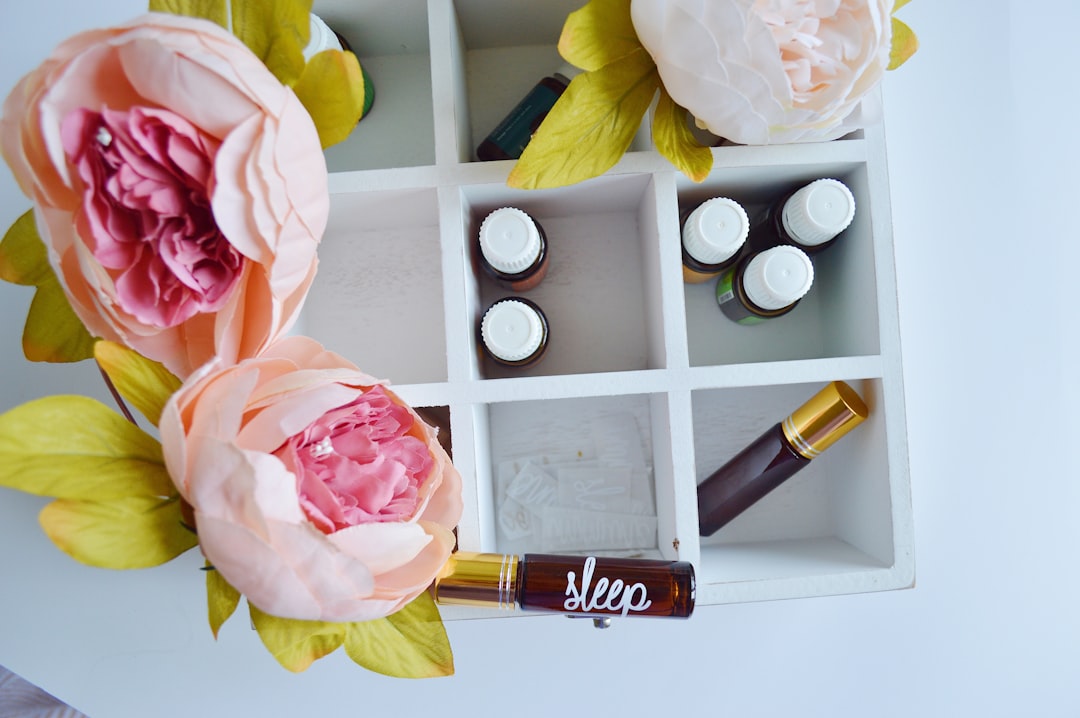In recent years, there has been a growing trend towards natural and homemade skincare treatments. Many people are turning to DIY skincare as a way to avoid harsh chemicals and artificial ingredients found in commercial products. Homemade skincare treatments are not only cost-effective but also allow you to have full control over what you are putting on your skin. By using natural ingredients that are easily accessible, you can create effective skincare products at home. From face masks to exfoliating scrubs, moisturizers, and toners, there are endless possibilities for creating your own skincare routine. In this article, we will explore the world of homemade skincare treatments and provide you with a variety of recipes and tips to help you achieve glowing, smooth, and healthy skin.
DIY Face Masks for Glowing Skin
One of the most popular homemade skincare treatments is the DIY face mask. Face masks are a great way to nourish and rejuvenate the skin, and there are countless ingredients that can be used to create a mask tailored to your specific skin type and concerns. For example, a simple honey and yogurt mask can help to hydrate and soothe dry skin, while a clay mask with activated charcoal is great for drawing out impurities from oily or acne-prone skin. Another popular ingredient for face masks is turmeric, which has anti-inflammatory and antioxidant properties that can help to brighten the skin and reduce the appearance of dark spots. Additionally, ingredients like avocado, oatmeal, and aloe vera can also be used to create nourishing and hydrating face masks. By using natural ingredients, you can create a customised face mask that will leave your skin glowing and rejuvenated.
On the other hand, DIY face masks can also be tailored to address specific skin concerns such as acne, dryness, or dullness. For example, a honey and cinnamon mask can help to reduce acne and inflammation due to honey’s antibacterial properties and cinnamon’s ability to improve blood circulation. For those with dry or sensitive skin, a soothing mask made with cucumber and aloe vera can provide much-needed hydration and relief from irritation. Additionally, for those looking to brighten their complexion, a face mask made with papaya and lemon juice can help to exfoliate dead skin cells and promote a more radiant appearance. The versatility of homemade face masks allows you to experiment with different ingredients and find the perfect combination for your skin’s needs. By incorporating these DIY face masks into your skincare routine on a regular basis, you can achieve a healthy and glowing complexion without the use of harsh chemicals or artificial ingredients.
Natural Exfoliating Scrubs for Smooth and Radiant Skin
Exfoliation is an essential step in any skincare routine as it helps to remove dead skin cells and promote cell turnover, resulting in smoother and more radiant skin. While there are many commercial exfoliating scrubs available, homemade scrubs offer a natural alternative that is gentle yet effective. Ingredients such as sugar, salt, coffee grounds, and oatmeal can be used as the base for exfoliating scrubs, while additions like honey, coconut oil, and essential oils can provide additional nourishment and hydration. For example, a simple sugar scrub made with coconut oil can help to exfoliate the skin while providing moisture and hydration. Similarly, a coffee scrub can help to improve circulation and reduce the appearance of cellulite while leaving the skin feeling smooth and invigorated.
Moreover, natural exfoliating scrubs can also be customised to target specific skin concerns such as acne or dullness. For those with acne-prone skin, a scrub made with tea tree oil can help to unclog pores and reduce breakouts, while a scrub made with lemon juice can help to brighten the skin and fade dark spots. Additionally, for those with sensitive skin, a gentle oatmeal scrub can provide exfoliation without causing irritation. By incorporating natural exfoliating scrubs into your skincare routine 1-2 times per week, you can achieve smoother and more radiant skin without the use of harsh chemicals or synthetic ingredients.
Homemade Moisturizers for Hydrated and Healthy Skin
Moisturizing is an essential step in any skincare routine as it helps to keep the skin hydrated, soft, and supple. While there are many commercial moisturizers available, homemade moisturizers offer a natural alternative that is free from synthetic fragrances and preservatives. Ingredients such as shea butter, coconut oil, almond oil, and aloe vera can be used as the base for homemade moisturizers, while additions like essential oils and vitamin E can provide additional nourishment and benefits for the skin. For example, a simple moisturizer made with shea butter and almond oil can provide deep hydration and nourishment for dry or mature skin, while a lighter moisturizer made with aloe vera and jojoba oil is great for those with oily or acne-prone skin.
Furthermore, homemade moisturizers can also be tailored to address specific skin concerns such as anti-ageing or soothing irritation. For those looking to combat signs of ageing, a moisturizer made with rosehip oil can help to improve skin elasticity and reduce the appearance of fine lines and wrinkles. Similarly, for those with sensitive or irritated skin, a moisturizer made with chamomile essential oil can help to calm inflammation and provide relief from redness and discomfort. By using natural ingredients that are free from harsh chemicals and artificial fragrances, homemade moisturizers can provide the skin with the nourishment it needs to stay healthy, hydrated, and glowing.
DIY Toners and Mists for Refreshed and Rejuvenated Skin
Toners and mists are an often overlooked but important step in any skincare routine as they help to balance the skin’s pH levels, tighten pores, and provide an extra layer of hydration. While there are many commercial toners available, homemade toners offer a natural alternative that is free from alcohol and synthetic fragrances. Ingredients such as witch hazel, rose water, apple cider vinegar, and green tea can be used as the base for homemade toners, while additions like essential oils and aloe vera can provide additional benefits for the skin. For example, a simple toner made with witch hazel and rose water can help to tighten pores and balance the skin’s pH levels, while a toner made with green tea can provide antioxidant protection and soothe inflammation.
Moreover, DIY toners and mists can also be customised to target specific skin concerns such as acne or dullness. For those with acne-prone skin, a toner made with apple cider vinegar can help to reduce excess oil production and prevent breakouts, while a mist made with cucumber water can provide cooling relief for irritated or inflamed skin. Additionally, for those looking to brighten their complexion, a mist made with citrus essential oils can help to refresh and rejuvenate the skin while providing a boost of hydration. By incorporating homemade toners and mists into your skincare routine, you can achieve refreshed and rejuvenated skin without the use of harsh chemicals or artificial ingredients.
Tips for Incorporating Homemade Skincare Treatments into Your Routine
Incorporating homemade skincare treatments into your routine is not only beneficial for your skin but also allows you to take control of what you are putting on your body. Here are some tips for incorporating homemade skincare treatments into your daily routine:
1. Start by identifying your skin type and specific concerns so that you can tailor your homemade treatments to meet your individual needs.
2. Experiment with different ingredients and recipes to find what works best for your skin. Keep in mind that natural ingredients may take some time to show results, so be patient and consistent with your routine.
3. Consider creating a weekly skincare ritual where you set aside time to pamper yourself with homemade masks, scrubs, or treatments.
4. Store your homemade skincare products in airtight containers in a cool, dark place to ensure they remain fresh and effective.
5. Be mindful of any allergies or sensitivities you may have to certain ingredients and perform patch tests before using new products on your face or body.
By following these tips and being mindful of what you are putting on your skin, you can create a personalised skincare routine that is both effective and enjoyable.
Conclusion and Final Thoughts on Homemade Skincare Treatments
Homemade skincare treatments offer a natural alternative to commercial products that are often filled with harsh chemicals and artificial ingredients. By using natural ingredients that are easily accessible, you can create effective skincare products at home that are tailored to your specific needs. From face masks to exfoliating scrubs, moisturizers, toners, and mists, there are endless possibilities for creating your own skincare routine that will leave your skin glowing, smooth, hydrated, refreshed, and rejuvenated.
Incorporating homemade skincare treatments into your routine not only allows you to take control of what you are putting on your body but also provides an opportunity for self-care and pampering. By experimenting with different ingredients and recipes, you can find what works best for your skin while avoiding harsh chemicals or synthetic fragrances. Whether you have oily, dry, sensitive or acne-prone skin, there are homemade skincare treatments that can cater to your individual needs. With patience, consistency, and mindfulness of what you are putting on your skin, you can achieve healthy, radiant, and glowing skin through the use of homemade skincare treatments.
Discover the secrets to maintaining healthy and glowing skin with our article on 5 Homemade Skincare Treatments for Glowing Skin. In addition, delve into the world of comprehensive beard and skin care with our insightful guide here. Learn about the benefits of professional facials and how they can elevate your skincare routine by reading our article here. Furthermore, explore the correlation between skincare expenditure and results in our thought-provoking piece here. Elevate your skincare knowledge and routine with these insightful reads.
FAQs
What are the benefits of homemade skincare treatments?
Homemade skincare treatments can be beneficial as they often use natural ingredients that are gentle on the skin and free from harsh chemicals. They can also be cost-effective and customizable to suit individual skin needs.
Are homemade skincare treatments suitable for all skin types?
Homemade skincare treatments can be suitable for all skin types, but it’s important to choose ingredients that are appropriate for your specific skin concerns. For example, those with sensitive skin may need to avoid certain essential oils or acidic ingredients.
What are some common ingredients used in homemade skincare treatments?
Common ingredients used in homemade skincare treatments include honey, yogurt, avocado, coconut oil, oatmeal, aloe vera, and essential oils such as lavender or tea tree oil. These ingredients are known for their moisturizing, soothing, and nourishing properties.
How often should homemade skincare treatments be used?
The frequency of using homemade skincare treatments can vary depending on the specific treatment and individual skin needs. It’s generally recommended to start with once or twice a week and adjust as needed based on how your skin responds.
Are there any risks associated with using homemade skincare treatments?
While homemade skincare treatments are generally safe, there is still a risk of allergic reactions or skin irritation, especially if you have sensitive skin. It’s important to patch test new ingredients and discontinue use if any adverse reactions occur.




